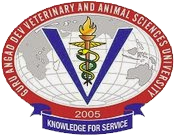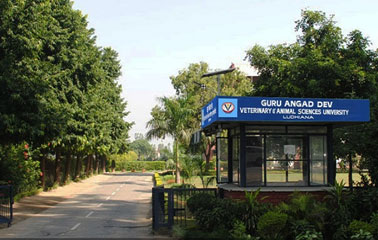

The XIX National Congress of Veterinary Parasitology under the aegis of Indian Association for the Advancement of Veterinary Parasitology (IAAVP) being organized by the Department of Veterinary parasitology,
Dr P N Bhat, a renowned scientist , Former DDG (Animal Science) ICAR, Chairman, Task Force on Animal Biotechnology, DBT, New Delhi and Chairman, World Buffalo Trust was the chief guest who inaugurated the congress while, Dr V K Taneja, Vice-Chancellor, GADVASU will preside over the function. The event started with the invocation and welcome of dignitaries. Dr. Simrat Sagar Singh, Dean College of Veterinary Science, welcomed the delegates, guests and participants. He highlighted the role parasitologists in diagnosis and controls the parasitic diseases for enhancement of livestock productivity to make farmers economically sound. The report of the society was presented by Dr P. D. Juyal, General Secretary, IAAVP. This was followed by Award presenting ceremony. On this occasion, a compendium of abstracts to be presented during the conference alongwith CD, a compilation of the department al activities since inception and current volume of the Journal of Veterinary Parasitology was released by the chief guest Dr. P N Bhat. Four retired Professors of the alumni of the Department of Veterinary Parasitology,
Society admitted two scientists of eminence, Prof M.B Chhabra ,
Dr K M L Pathak, President IAAVP and Director, National Research Centre on Camel ,
Dr. P.N. Bhat highlighted the impact of parasitic diseases on national economy. He said that despite the immense progress made with drugs, vaccines, and simple measures of public health and sanitation against infectious diseases in the past 100 years, these diseases still impose intolerable burden on half of the humanity. He said the era of the "omics" is with parasitology, and changing trends in the discipline are addressing fundamental biological problems. This can obviously become the "golden age of molecular parasitology," leading to the control of parasitic diseases that have plagued man and his animals since antiquity. Sophisticated new tools such as microarray technologies has provided better understanding of the interactions between host response and parasite virulence factors.
Dr Sarman Singh from All India Institute of Medical Sciences (AIIMS)
Dr Taneja exhorted the veterinary parasitologists to address emerging challenges in the form of drug resistance, emerging and re-emerging food borne zoonoses, transboundary diseases, food safety, vector control and vaccine development. Dr. P.D. Juyal, Organizing Secretary, XIX NCVP proposed the vote of thanks.

